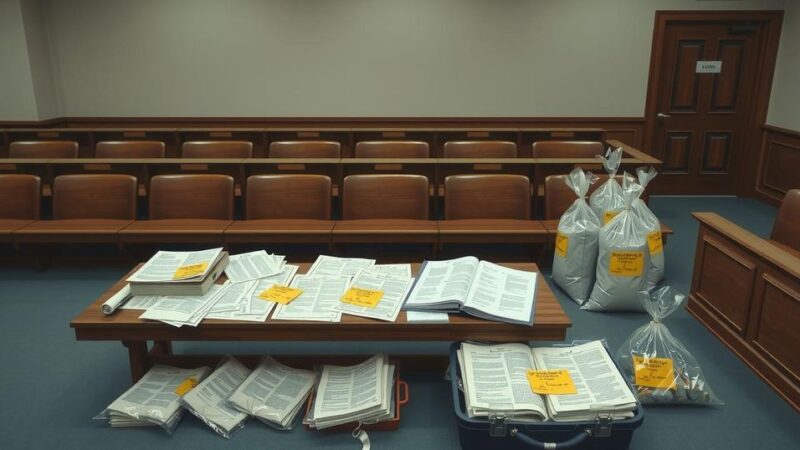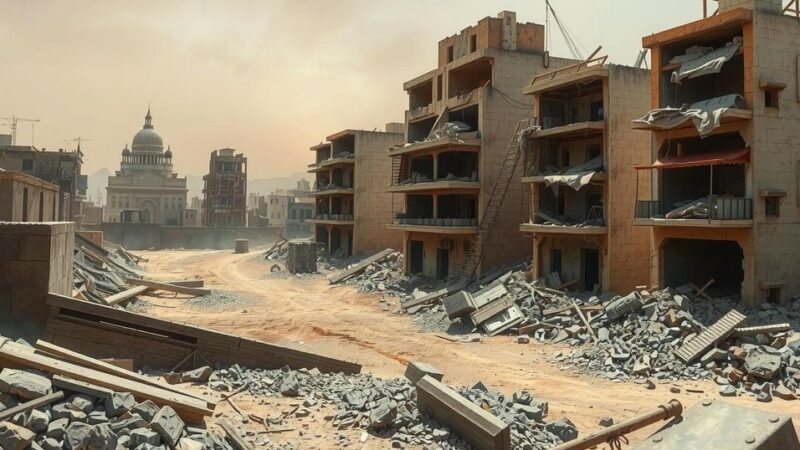Sudan has initiated legal proceedings at the International Court of Justice against the UAE, accusing it of complicity in genocide through its support for the Rapid Support Forces (RSF). The case cites documented atrocities against the Masalit group and breaches of the Genocide Convention. The situation raises critical questions about global solidarity and accountability in international justice. Failure to support Sudan’s case risks undermining principles of justice and could embolden state actors engaged in human rights violations.
On March 6, 2023, Sudan submitted a case to the International Court of Justice (ICJ) against the United Arab Emirates (UAE), alleging complicity in genocide due to the UAE’s support for the Rapid Support Forces (RSF). Since April 2023, the RSF has engaged in violent conflict against the Sudanese Armed Forces (SAF). The allegations include enabling atrocities against the Masalit ethnic group, with estimations of 15,000 civilian deaths and over 500,000 individuals displaced, recalling the historical violence of the early 2000s Darfur conflict.
The claims assert that the UAE has breached the Genocide Convention by facilitating RSF’s actions against the Masalit. Evidence from organizations such as the Raoul Wallenberg Centre for Human Rights and Human Rights Watch catalog systematic violence, including killings and mass displacement in West Darfur. Additional corroboration comes from satellite imagery, revealing significant destruction of civilian areas, and U.N. reports detailing mass graves linked to RSF attacks, indicating a clear intent to commit genocide against the Masalit.
Documented accounts include survivor testimonies alleging that RSF fighters specifically targeted civilians for their ethnicity, reinforcing claims of genocidal intent. In January 2024, a U.N. Security Council report corroborated the UAE’s involvement, confirming arms supplies to the RSF. Flight tracking data indicated extensive UAE military support, further solidifying Sudan’s case.
A media investigation identified an Emirati drone base near the Sudanese border that aided the RSF, enhancing their military capabilities and resulting in increased civilian casualties. The geopolitical dynamics complicate the situation, as the UAE possesses significant economic power, making it a formidable opponent for Sudan.
Politicians in the U.S. have acknowledged UAE’s failure to cease support for the RSF, contributing to the ongoing violence. Amid global challenges, the ICJ case against the UAE represents a crucial opportunity to assess the accountability of powerful states and may test the integrity of international law.
The recent legal actions taken by South Africa against Israel for genocide gathered widespread support from other nations in the Global South. The solidarity shown towards South Africa highlights the moral obligation of these nations to support Sudan as well. Failure to do so could undermine the principles of international justice and the coherence of global south solidarity, particularly in the face of exploitation by dominant international actors.
However, supporting Sudan’s case does not equate to endorsing the actions of the SAF, which has its own record marred by violence against civilians. Evidence shows the SAF has also committed significant atrocities amidst the conflict, illustrating the complexities of Sudan’s political landscape.
Support for the ICJ case should be based on principled considerations about the UAE’s broader regional influence and alleged human rights violations. If left unchecked, the UAE’s impunity may have severe repercussions, fostering greater instability across multiple nations in the Global South. The successful resolution of this case holds the potential to restore credibility to the ICJ, contingent upon a unified response from countries in the Global South.
As the UAE may seek to evade accountability under the Genocide Convention, the legal landscape suggests that its reservations regarding jurisdiction may not be tenable. The integrity of international law is at stake, and failure to support Sudan risks perpetuating a cycle where power and wealth overshadow justice and accountability for vulnerable populations.
In conclusion, Sudan’s ICJ case against the UAE presents a crucial opportunity for the Global South to demonstrate solidarity and uphold the principles of international justice. The documented atrocities committed by the RSF, supported by the UAE, warrant decisive backing from nations that previously supported South Africa’s case against Israel. Failing to act may jeopardize the integrity of international law and embolden powerful states to act without accountability. This pivotal moment requires a principled response to mitigate further humanitarian crises and uphold justice for the affected populations in Sudan.
Original Source: foreignpolicy.com






